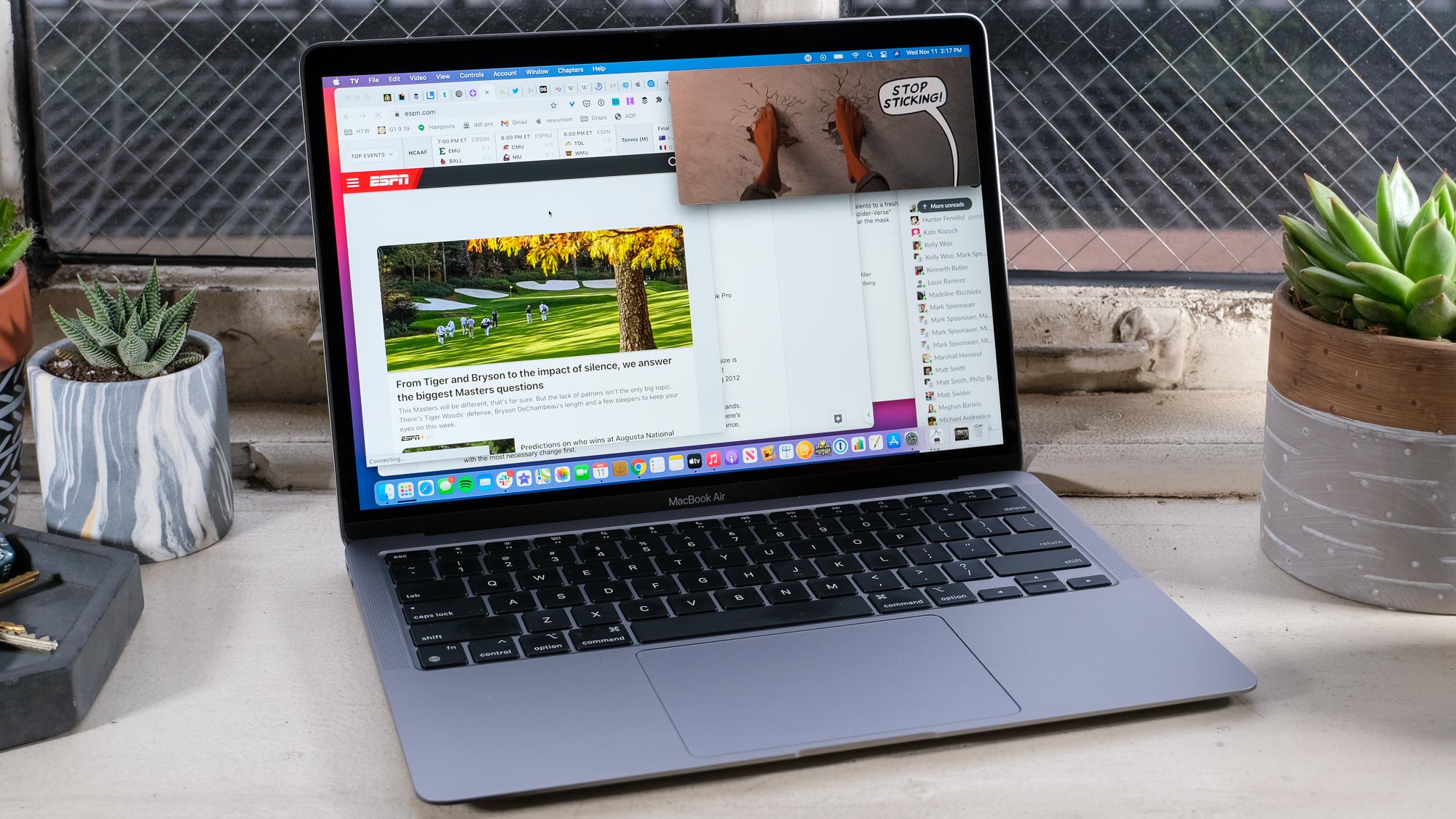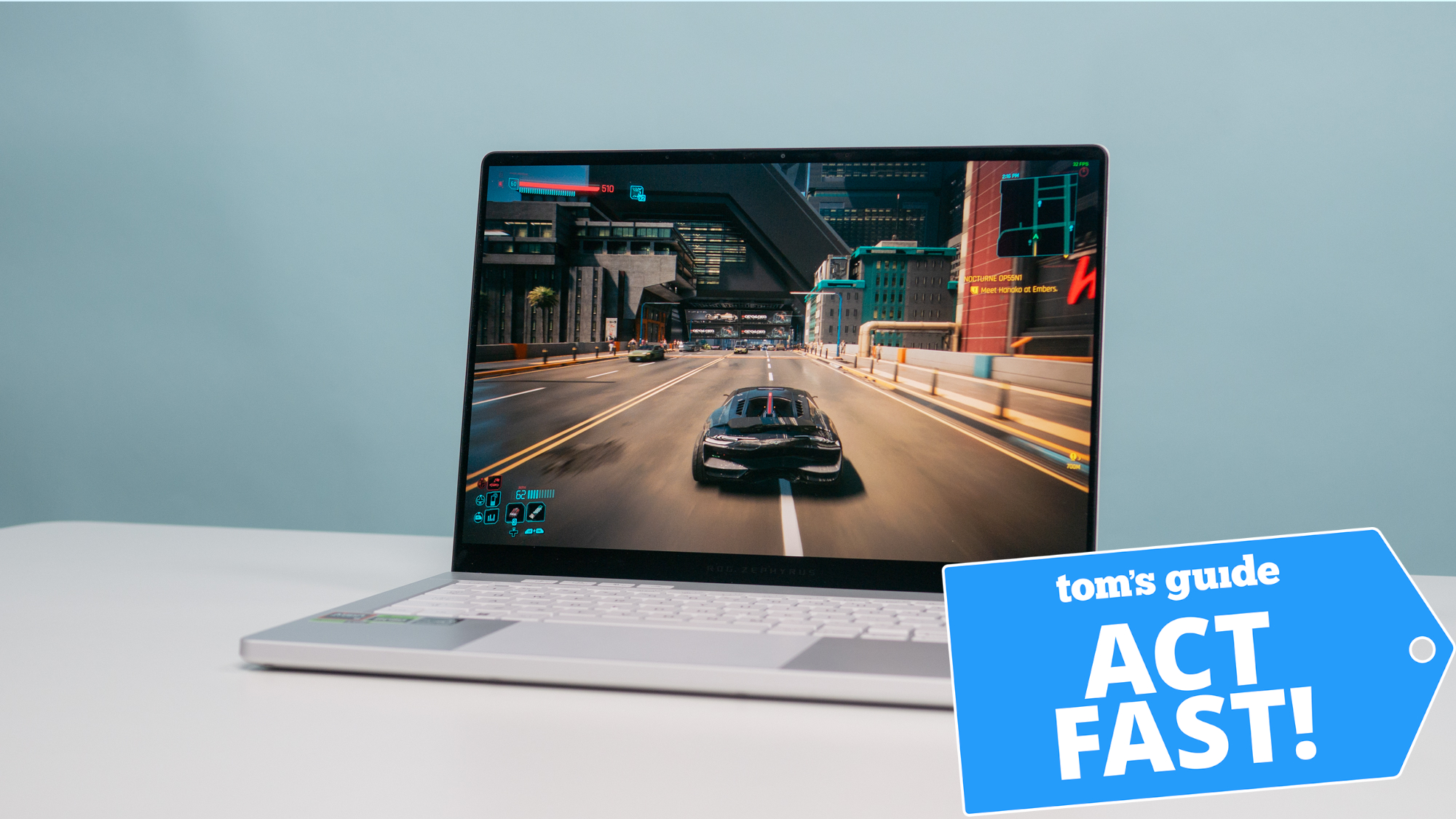M1 MacBook SSDs are facing a big problem — and it could kill your laptop
There's something funny going on with the storage drives in Apple's newest MacBooks and Mac Mini.

The new M1 chip in Apple's latest MacBooks offers great performance and battery life. It may not be so good for your storage drive, however.
On Twitter and several other forums, users of the latest MacBook Air, MacBook Pro and Mac Mini models are reporting solid-state-drive (SSD) wear rates far higher than expected. If the figures are accurate and the trend continues, it could mean worryingly short lifespans for Apple's latest batch of laptops.
- MacBook Air with M1 review: A computing revolution
- Check out the best laptops we've tested
- Plus: Stunning iPhone Fold video teases Apple’s foldable future
SSD wear — the basics
The reliability of SSDs decreases over time as the memory cells in the drive get used and reused, eventually resulting in slower response times and corrupted data. That's why manufacturers guarantee their SSDs will work up to a specific number of total bytes written (TBW).
It's important to note that SSDs don't instantly fail when they reach their warrantied TBW. It just marks a threshold for when you're more likely to start seeing problems.
Earlier this month, Tesla had to recall 135,000 vehicles because SSD-like flash-memory storage chips built into the center consoles were rapidly wearing out, killing the cars' infotainment systems.
What's the problem?
Mac power users have been checking how many bytes their MacBooks' SSDs have written by using an app called Smart Monitoring Tools, via the macOS Terminal. This is a somewhat complex procedure that requires downloading a third-party app, so we don't recommend you try it yourself unless you're a very confident user.
In the case of the tested Macs seen in these threads, one Mac Mini user claimed to have written 165TB of data in just two months of use. Compared to equivalent retail SSDs from Toshiba (who supplies the SSDs inside the MacBooks), that's equivalent to 10% of its total warrantied TBW.
Sign up to get the BEST of Tom's Guide direct to your inbox.
Get instant access to breaking news, the hottest reviews, great deals and helpful tips.
In theory, the SSDs in Apple's M1 MacBooks should guarantee reliable use for around five years. But this rapid rate of use slashes that reliable life to less than two years.
This 10% figure seems to be an outlier. Most users complaining about this issue are reporting figures of 2-3% usage, as seen on threads on the MacRumors forum and the LinusTechTips forum. That's still higher than you'd expect for a brand-new device, though.
To make matters worse, this is an internal drive soldered onto the mainboard of the Macs. There's no way to replace it without swapping out several other parts, making repairs much more expensive than necessary.
What's the cause?
Hector Martin, a Linux developer for M1 Macs, said on Twitter that this issue could be due to macOS' swap-file function, which uses the SSD as a virtual RAM extension for intensive tasks. The swap file is an essential part of Unix-derived operating systems such as macOS.
If the Mac is relying on the SSD for more processes than expected, it could explain why the SSD's usage seems to be so much higher than expected, particularly for models equipped with the basic 8GB RAM rather than the optional 16GB RAM.
Equally, the problem could be with the reported number. This could be caused by a bug somewhere within macOS Big Sur which is miscalculating the SSD usage. There's also the question of the accuracy of the third-party tool these users are relying on to calculate the write rate, as it could be misinterpreting certain values.
If you own one of these M1 MacBooks, you likely don't need to worry though. Only a small number of users, the ones who are saving the most data, seem to be at risk of this quirk of programming actually exhausting their SSDs. That's assuming the Macs are genuinely writing this much data onto the SSDs.
Apple's response
An unofficial statement to AppleInsider from a source within Apple said: "While we're looking into the reports, know that the SMART data being reported to the third-party utility is incorrect, as it pertains to wear on our SSDs".
As for an official response, there isn't one yet. If this problem continues to be reported however, Apple will have no choice but to act before its fledgling line of laptops with specially designed processors gets an unfortunate reputation for unreliability. We can hope that the reports we've seen so far have a common cause that isn't related to the Macs' drives.

Richard is based in London, covering news, reviews and how-tos for phones, tablets, gaming, and whatever else people need advice on. Following on from his MA in Magazine Journalism at the University of Sheffield, he's also written for WIRED U.K., The Register and Creative Bloq. When not at work, he's likely thinking about how to brew the perfect cup of specialty coffee.
-
toke lahti "Equally, the problem could be with the reported number. This could be caused by a bug somewhere within macOS Big Sur which is miscalculating the SSD usage."Reply
SMART data does not come from OS, it comes straight from mass storage's controller. OS can't (or at least shouldn't) fake those numbers.
That's the whole point of SMART: The users and manufacturers of mass storage can verify the health of their storage. -
Whoopie Reply
If this turns out to be correct will Apple do a recall? I think they would have to offer to replace such a defective product.admin said:MacBooks and Mac Minis using Apple's M1 chip seem to be rapidly wearing out their SSDs, which could severely reduce the devices' lifespans if the numbers are accurate.
M1 MacBook SSDs are facing a big problem — and it could kill your laptop : Read more
